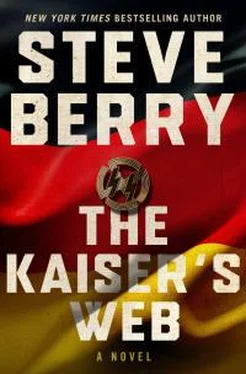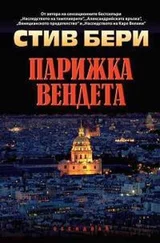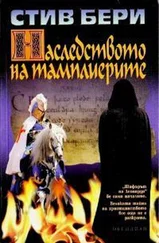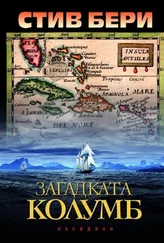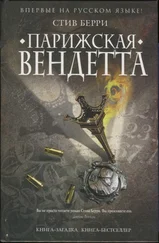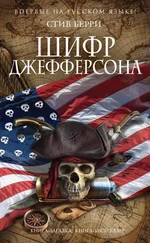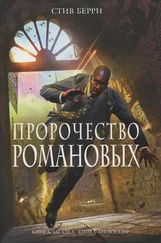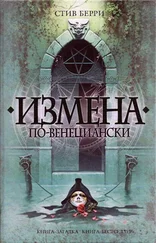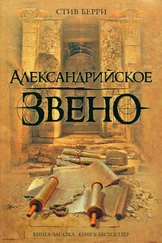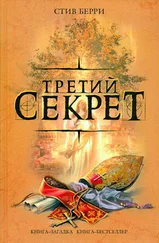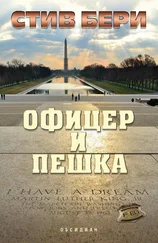He drove the Range Rover while Cassiopeia sat in the rear and Bruin filled the front passenger seat. He followed the big man’s directions as they wove through Kimberley and turned north, paralleling the Vaal River, the earth flat, red, and fiery. Then the landscape changed at the quaint settlement of Christiana. Lines of poplar started to fringe the riverbank and miles of concrete channels funneled water westward, transforming the earth into green fields of corn, lucerne, mealie, and potatoes. They passed through town and found a cemetery to the east, within sight of the river. A tall white man wearing a dirty sun helmet, a bush shirt, and a pair of shabby trousers approached the car through a partially open iron gate. Bruin climbed out and talked to him, then motioned for them to drive through as the gate swung open.
“Park over there,” Bruin said, motioning.
The grassy cemetery was spread out over a large area under the shade of tall gum trees. A low mortar wall edged the perimeter. Crosses, obelisks, and headstones of varying shapes broke the flatness. Shrubs and flowers congregated at spots like mourners around the graves. An assortment of small chapels and mausoleums rose throughout.
“This was officially whites only, until recently,” Bruin said.
“Why do I get the impression it still is?” he asked.
“Sadly, there are many in this country who still long for apartheid. Even in death.”
A storm was brewing to the west, the clouds thick and black and fed by a blazing sun that refused to be shielded. He stared ahead at one of the marble mausoleums. Gerhard Schüb stood outside an open gate. They walked over to him, past split-slate gravestones and moldering tombs.
“I made the decision to bury them here,” Schüb said as they approached. “Bormann owned an interest in several Kimberley mines. He came to this area often. And it was away from Nohana.”
“I’m surprised Bormann even allowed his body to be buried,” Cassiopeia said.
“He would be, too,” Schüb said. “His orders were for his corpse to be burned. Like Hitler’s. He did not want anyone finding his remains.”
“Why did you disobey?” Cassiopeia asked.
The old man shrugged. “I was no longer required to follow orders. So I did as I pleased. I put him beside the Widow and his son. I thought it fitting that he be in the same innocuous location as they.”
“You’re a strange man,” Cotton declared, not caring if he insulted the German.
“I would agree. My life has been unusual, to say the least. I am ashamed to say that I allowed loyalty, greed, and pride to dictate my decisions. But if I had not, I would not now have Jan, and he is my joy.” The old man smiled at his son. “A father should be so lucky.”
The younger Bruin said nothing. He didn’t have to. The bond between them was clear.
“Wasn’t putting Bormann here, by Braun, an insult to her?” Cassiopeia asked.
Schüb shrugged. “It mattered not anymore. Both were dead and it made it easier for me to keep watch.”
He was curious. “From whom?”
“I never really knew. I just realized that my task was not over. Something told me this day might come.”
They approached the open grille and studied the mausoleum’s interior. A simple mixture of marble and granite. Nothing religious or personal. No inscriptions.
“You’re not a God-fearing man?” he asked Schüb.
“From all I’ve seen in my life, if there is a God he’s quite terrible at what he does.” Schüb came close. “The Widow feared being buried in the veld—that the animals would feast on her body. She many times said she would not want to be anywhere the beasts could find her.”
“Bormann never questioned you about what you did with her body?” Cassiopeia asked.
He watched the old man as he considered her inquiry. The eyes were those of someone who’d given up expecting good news.
Which was understandable.
“He told me to dispose of her, and I did. He never asked where. This was my place. My creation. Known only to me.” He motioned. “Shall we go inside?”
They stepped from muggy air into a cooler space. A block of dull light from the open doorway lit the far wall. The interior was a rectangle about twenty feet long and nearly that wide. Three raised tombs dominated the interior, two long, one small, clearly a child’s.
Schüb seemed to notice their interest. “I read once where Bormann wrote to his first wife during the war and told her that he wanted no cheap exhibitions at his death. They gave a false impression, he said. I believe I honored that request. Besides, many in this land mark their graves sparingly.”
He did the math. Braun and the boy would have been dead nearly seventy years, Bormann over forty. Surely, though, some semblance of DNA could be recovered and a scientific verification made on the remains from known descendants that could be matched to Pohl.
He stepped to the smaller of the three sarcophagi and slid back the slab of gray marble that covered the top just enough to peer inside. He expected to see the remains of a small child, maybe five to six years old, the body decayed, only blackened bones signaling that the occupant was once human.
But to his surprise there was nothing.
“It’s empty.”
“That’s not possible.”
The old man stepped close and peered inside. For the first time Schüb showed bewilderment. “I put him there. It was so sad. My heart still hurts for him. He was a darling lad.”
The pain in the old man’s voice was clear.
Cotton stepped to one of the other tombs, this one of light pink marble. He assumed it was Eva Braun’s.
“She loved that color,” Schüb said.
The lid covering the marble rectangle was thick. He would need help sliding it aside. Jan Bruin came close and together they angled one corner to the left, exposing a dark triangular opening.
“There’s nothing here, either,” he said.
“I was present when the lid was closed,” Schüb said. “I have maintained this mausoleum for decades. It has remained inviolate.”
“When was the last time the tomb was checked?” Cassiopeia asked.
“Given my ‘death,’ it has been over two years.”
Cotton moved to Bormann’s sarcophagus. He and Bruin slid the white marble lid ajar. Empty, as well.
Gerhard Schüb stood deep in thought, but it was clear that what they’d found was unexpected. “This changes everything.”
“I assumed you had something in mind.”
“I did, until this. We need to leave.”
“Where are we going?”
“To where there are answers.”
He and Bruin maneuvered the lids back into place.
“Care to say where?” Cassiopeia asked.
Schüb was standing at the doorway, staring out into the cemetery. Drops of rain were starting to sprinkle down, peppering the mausoleum’s iron roof in a steady rat-tat-tat.
The old man turned back and said, “Switzerland.”
CHAPTER SIXTY-ONE
LUGANO, SWITZERLAND
MONDAY, JUNE 17
2:00 P.M.
Cotton stood on the terrace and admired both the lake and the surrounding snowcapped Alps. The Italians called the indigo water Ceresio while the Swiss labeled it Lugano, which illustrated the dichotomy of the region since Italy controlled the south shore, the Swiss the north. A great cloud wrapped Mount San Salvatore in the distance with a mantle of cotton haze, its gnarly peak like a great tusk thrusting toward heaven.
Gerhard Schüb’s villa dominated fifteen acres of pristine shoreline southwest of Lugano. Its elegant façade was a pale-yellow brick adorned with elaborate painted friezes, and not even the trumpery additions could obscure its grandeur. Rooted periwinkles and creeping ivy sprang from black marble basins. Renaissance doorways, gilded paneling, rich tapestries, and terra-cotta floors completed what was clearly a Mediterranean feel. He and Schüb had arrived in Lugano by military transport, while Cassiopeia and Jan Bruin flew on to Munich. They’d devised a plan. Cassiopeia would speak with Marie Eisenhuth, and Bruin would be the incontrovertible evidence needed to convince her of what was happening and what had to be done.
Читать дальше
